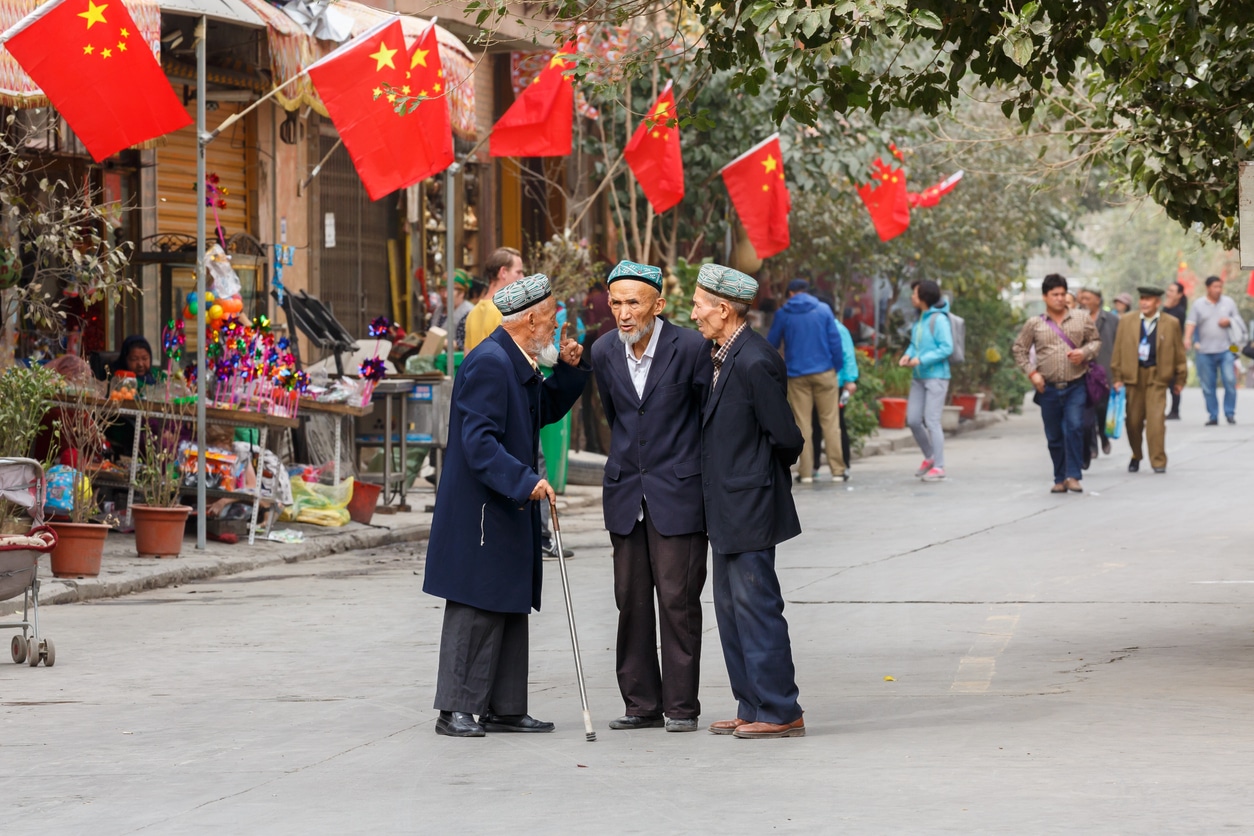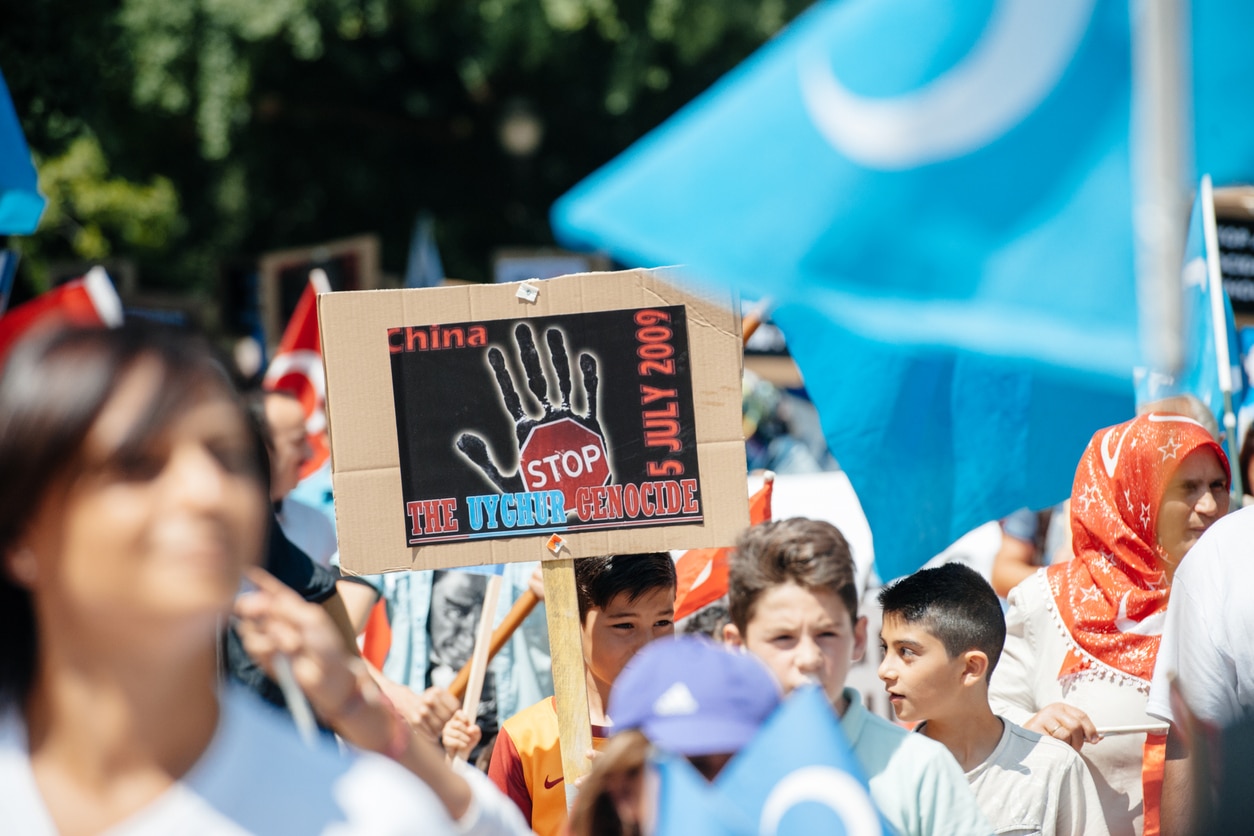Watchdog: Amazon Suppliers Are Linked to Forced Labor in China

Non-profit research organization Tech Transparency Project (TTP) has come out with a report detailing Amazon’s use of suppliers linked to forced labor in China.
The group says the findings raise questions about Amazon's exposure to China's repression of minority Uyghurs in Xinjiang, and the extent to which the ecommerce giant is adequately vetting its supplier relationships.
Amazon’s Online Retail Business Is Tied to China
According to the group, Amazon’s public supplier list includes five Chinese suppliers that have been linked, directly or indirectly, to forced labor of ethnic minorities from the Xinjiang region in northwest China. These suppliers produce goods for Amazon’s private label brands, including Amazon Basics and Amazon Essentials. While the products supplied were not specified, these brands offer a wide range of goods, including clothing, appliances, and pet supplies.
Three Amazon suppliers are alleged to have used forced labor directly: Luxshare Precision Industry, AcBel Polytech, and Lens Technology. Two others, GoerTek and Hefei BOE Optoelectronics, are reported to be supplied by factories that have been implicated in forced labor.

The findings further reveal that Amazon has continued to include Esquel Group on its supplier list for more than a year after the US government imposed sanctions on an Esquel subsidiary for involvement in forced labor in China.
Neither Amazon nor the suppliers mentioned commented on the allegations, although the former maintains that it complies with the laws and regulations in all jurisdictions in which it operates.
Third Party Sellers, Too
Also included in the report is evidence that some third-party marketplace sellers on Amazon may be offering products from similar suppliers and benefiting from forced labor in the region, citing cotton imports which are already sanctioned by US authorities.
Examples include one listing for “100% China Xinjiang towels” that was still live on the Amazon UK marketplace as of Monday, and an Amazon seller deleting references to Xinjiang from the description of its bedding, without making any discernible changes to the underlying products.
China supplies nearly a third of all traded goods globally, and it is among the top countries to source private label products from, largely because of production efficiency and mature logistics infrastructure.
“Labor Transfers” in China
For years, Chinese authorities have drawn criticism from the international community for programs like “labor transfers,” where workers are moved from the Xinjiang region, a predominantly Muslim area in western China to factories in other parts of the country. These factories are viewed as part of a larger network of mass internment and re-education camps in China.
The Uyghurs are a Turkic ethnic group native to Xinjiang. They are largely Muslim and are distinct from the predominant Han Chinese ethnic group. Xinjiang produces important raw materials, including around 22% of all cotton grown worldwide. According to one report, China has ordered the closure of nearly 160 organizations that focused on understanding the traditional Uyghur culture.
Turning a Blind Eye
Amazon is not the only Big Tech company that has come under fire for benefiting from forced labor programs in China. Apple and other Silicon Valley giants have previously been accused of using suppliers linked to forced labor in the region.
The organization also claims that household names like Adidas, Coca-Cola, and Nike, have used components that were produced through forced labor in Xinjiang. Other brands like Hugo Boss and Uniqlo have come under increased pressure to make sure their supply chains do not trace back to Xinjiang.
A Step in the Right Direction
To counter these human rights violations, the US Congress passed the Uyghur Forced Labor Prevention Act in December 2021, wherein the government will assume that all goods made in Xinjiang involve forced labor, unless a company can prove otherwise—shifting the burden of proof to companies, with the view that it will be more effective at preventing the sale of goods that involve forced labor in Xinjiang in the United States.
While the forced Uyghur labor remains a pressing issue for international supply chains, experts believe that identifying suppliers who benefit from human rights violations is a step in the right direction.





Go visit Xinjiang, Go take a look those “Camps” instead of reading CNN